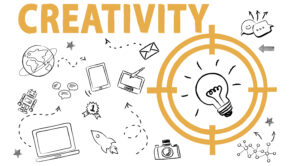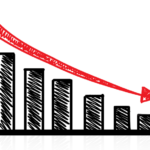How Does Technology Affect Our Daily Health?
Technology has come to impact nearly every part of our lives, creating opportunities to improve our health and safety as well as encouraging some unhealthy behaviors. As technology continues to advance, we’ll move farther away from our primal beginnings. While it’s obvious that technological advances like hospitals and transportation methods have greatly improved our quality of life, we’ve also lost some opportunities to take part in some activities that would keep our bodies and minds fit.
Source: Pixabay
Here are some of the greatest positive and negative effects technology has on our health today.
The Pitfalls of Screen Culture
Especially with the widespread adoption of smartphones and the internet, we have nearly unlimited access to streaming entertainment, social media platforms, news outlets, shopping options, digital communications, and more. While these can offer people more opportunities to engage with the world around them, especially via social media, these outlets also have the potential to increase feelings of social isolation.
Furthermore, the fast-paced nature of the internet and the instant gratification that comes with being able to find nearly anything you want within a few seconds can encourage addictive behaviors. Cutting yourself off completely from this instant access to content and social media channels might not be the best decision, yet exercising caution and self-awareness about how much you rely on these can help you to maintain a safe relationship with your digital interactions.
We don’t just face social and emotional issues when we become fixated on the digital world. Spending so much of our time staring at screens can have terrible effects on our eyes. In some cases, people may develop a condition known as computer vision syndrome (CVS) which can cause headaches, blurred vision, dry eyes, and eye strain. While this is a temporary condition, the symptoms won’t go away until we spend enough time off of our devices, which can be a serious challenge.
Fortunately, it is possible to prevent digital eye strain in the first place by breaking up long periods of time spent watching screens. The 20-20-20 rule is a good standard to live by in order to keep from pushing your eyes too far. This rule simply suggests that for every 20 minutes you spend staring at a screen, you should take 20 seconds to look at something that is at least 20 feet away from you.
This can be especially helpful if you spend all day working on a computer, though some version of the 20-20-20 rule could also help prevent eye strain when you’re binge watching your favorite shows or diving deep into your social media feeds.
Fitness and Lifestyle Habits
Typically, when we’re binge watching the latest shows or scrolling through social media, we’re not exercising. Some reports point to a worldwide trend of people taking on increasingly sedentary lifestyles. As if it wasn’t already hard enough to find motivation to exercise, the internet offers limitless opportunities to stimulate our minds without having to leave the couch.
While technology itself can’t be held responsible for the choices individuals make, there is no doubt that digital media is a contributing factor to the rise in obesity rates around the world. A sedentary lifestyle can also increase a person’s risk of developing type II diabetes, some forms of cancer, and cardiovascular disease.
The light emitted by cell phones and computers can also interfere with our quality of sleep by disrupting the production of melatonin, a sleep-inducing hormone. We also spend more time later in the night actively engaging with digital media, which makes it difficult for our minds to relax and prepare for sleep. Keeping our phones next to our beds doesn’t help either when we feel the need to wake up in the middle of the night to respond to a text message or check our email.
Of course, technology isn’t always in opposition with positive health and fitness habits. You’re probably familiar with digital health tools like wearable fitness trackers and digital apps which can help people to set and maintain fitness goals and better track their progress with diets and exercise programs. The reward systems in some of these rely on gamification tactics that can make exercising a fun and self-competitive activity.
Fitness enthusiasts aren’t the only ones who stand to benefit from digital health trackers. Medical professionals and their patients can use digital health tracking technologies to more accurately monitor serious medical conditions. This can result in better care for chronic conditions as well as preventing some conditions from developing in the first place.
On the Road
While statistics regarding motor vehicle fatalities have continued to improve over the past few decades, driving is still one of the most dangerous activities we do every day. According to one report, two out of three drivers will be involved in an injury accident during their life. While there are many causes for this high rate of accidents, distracted driving is one of the greatest contributors. Of course, talking on the phone and texting is one of the most common causes of distracted driving.
However, as technology surrounding self-driving cars and big data continues to advance, we may see a drastic drop in the rate of motor accidents and injuries. Smart cars are equipped with sensors that constantly analyze the vehicle’s surroundings, and they use vast amounts of data collected from computers, GPS receivers, other vehicles, and other sources to make safe decisions on the road.
While it will likely be years before self-driving cars replace motorist-driven cars as the new norm, there are some technologies widely available today that can help keep us safe on the road. While GPS devices have completely changed the way we find travel directions, some are also equipped with safety features that could save your life. For example, in the event of an accident, some newer GPS devices use shock sensors and front-facing cameras to capture video and tag your exact location.
Other technologies that stand to drastically improve road safety include lane departure warning systems, fatigue detection, external airbags, emergency brake assistance, and blind spot monitoring.
Keeping Things Clean
Our phones are with us everywhere we go — in our cars, on public transportation, in the office, in the grocery store, in the doctor’s office, at the bar, in our kitchen, as we sit at the dinner table, and, of course, in the bathroom. That’s a considerable amount of exposure to a lot of potentially germ-ridden scenarios. Yet most of us take the cleanliness of our phones and other devices for granted.
Those of us who work in offices where we rely on computers to do our jobs only increase our exposure to technologies that may harbor any number of bacteria. Keyboards, in particular, can catch a lot of germs and substances you might not want on your hands. In order to combat the spread of germs in your office as well as at home, it’s crucial that you wash your hands often or at least use hand sanitizer and take a moment to clean the surfaces you use most often.
Because we spend so much time plugged in to our various technologies, it’s easy to treat our most familiar devices as if they are an extension of our hands. The difference is that we wash our hands much more often. That being said, it’s probably a good idea to clean your devices, including phones, tablets, touch screens, keyboards, remote controls, and other technologies you come into contact with on a regular basis.
As with most things, the key to living a healthy life alongside technological advances is moderation. It is possible to take advantage of the privileges technology provides without falling victim to the addictive and disruptive effects. However, this requires a lot of self-awareness and willpower, and there may always be people who may struggle to maintain a healthy lifestyle within a highly technological age.












![Poker AI Revolution [Infographic]](https://technofaq.org/wp-content/uploads/2017/11/infographic-ai-poker-150x150.png)




